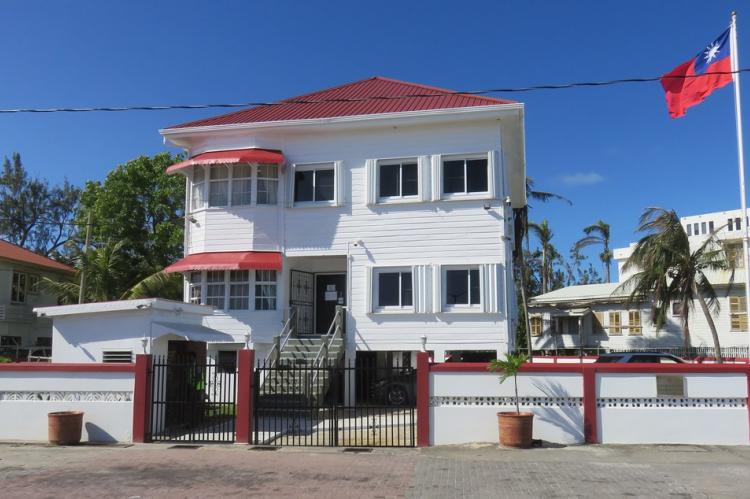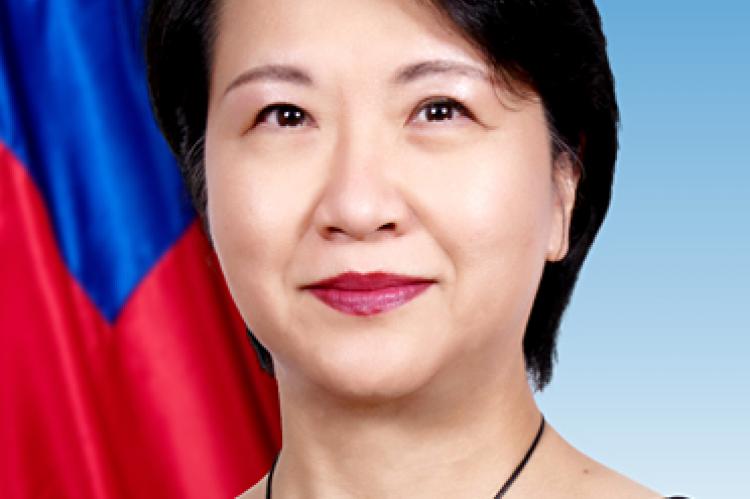Taiwan's Financial Meddling in Belize: A Structural Monopoly in Disguise?
By: Omar Silva
Editor: National Perspective Bz, DIGITAL 2024
Belize City: Thursday 19th September 2024
In recent years, serious concerns have surfaced regarding the nature and scope of Taiwan’s financial contributions to Belize’s political landscape. Leader of the Opposition, Moses Shyne Barrow, has recently raised alarms about what he claims to be Taiwan’s increasing involvement in Belize’s internal affairs through direct financial contributions to government ministers, allegedly for political mileage. Barrow argues that such actions go beyond the bounds of normal diplomatic relations, venturing into the realm of "dollar diplomacy"—a practice that could have far-reaching implications for Belize’s political independence and democratic integrity.
Taiwan’s involvement in Belize’s political affairs, under the guise of foreign aid or diplomatic cooperation, raises the specter of what is essentially a structural monopoly in campaign financing. According to Barrow, the financial support provided by Taiwan to ministers within the government has effectively created an unfair advantage for the ruling party. This practice not only tips the scales in favor of the People’s United Party (PUP) but also risks embedding a system where foreign influence dictates the course of national policy.
The Politics of Dollar Diplomacy
Taiwan’s long-standing strategy of dollar diplomacy has been a cornerstone of its international relations, especially with smaller nations that provide diplomatic recognition in return for financial assistance. While this may appear to be a legitimate form of foreign aid, Barrow points out that in Belize, it has increasingly morphed into political interference. He alleges that Taiwan’s contributions to government ministers are aimed at securing political favors and aligning national policies with Taiwan’s geopolitical interests. Such arrangements, he argues, not only undermine Belize’s sovereignty but also compromise the integrity of its democratic process.
By funnelling large sums of money into the ruling party’s coffers, Taiwan creates what political analysts call a structural monopoly—a situation where financial power consolidates control over the political process, marginalizing opposition parties and distorting the democratic playing field. As Barrow aptly puts it, “This is not about diplomacy; this is about Taiwan buying political loyalty and policy alignment through financial means.”
Structural Monopoly: A Threat to Democracy
A structural monopoly in political financing occurs when a single entity or faction gains overwhelming control over the political process through disproportionate financial support. In this case, Taiwan’s financial contributions to the government, as alleged by Barrow, amount to a form of policy capture. The expectation is that once elected, the party benefiting from these funds will enact policies that align with Taiwan’s interests, thereby distorting national priorities in favor of external actors.
When such funds are funnelled through locally registered Non-Governmental Organizations (NGOs) or Non-Profit Organizations (NPOs), the situation becomes even more problematic. Under the veil of developmental aid or social programs, foreign funds are injected into the political system, making it difficult to trace the true sources of campaign financing. Barrow's concerns point directly to this issue—by masking financial support as diplomatic aid, Taiwan’s contributions evade public scrutiny while gaining political influence behind the scenes.
What Barrow highlights is not simply Taiwan’s involvement in Belizean politics, but the manner in which these financial contributions have been strategically designed to influence election outcomes and secure political favours. This practice undermines the democratic ideals of transparency, accountability, and free competition, turning Belize’s political landscape into a battleground for external actors seeking to assert control.
Beyond Diplomatic Norms
While foreign aid is often an essential tool for diplomatic relations, the line between legitimate aid and political interference can be thin. In Belize’s case, Barrow asserts that Taiwan’s actions fall far outside the scope of normal diplomatic relations, as the money is not simply being used for genuine developmental projects or humanitarian aid—it is directly influencing political outcomes. This kind of financial involvement from a foreign government, he claims, is tantamount to corruption, as it seeks to buy loyalty and secure political leverage over future policy decisions.
Furthermore, Barrow points to the lack of legislative safeguards to regulate the activities of NGOs and NPOs that may be used as conduits for such foreign funding. Without strict rules governing the transparency and accountability of these organizations, foreign entities can exploit loopholes to secretly funnel money into the political system. In the absence of proper legislation, such as a robust NGO Regulatory Framework, Belize remains vulnerable to foreign interference, leaving its democratic institutions exposed to manipulation.
The Road Ahead
As Belize approaches key political milestones, including elections and economic reforms, the concerns raised by Barrow call for immediate attention. If Taiwan’s financial contributions are indeed influencing political outcomes, it is vital for Belize to strengthen its campaign finance laws and ensure transparency in all foreign contributions. A failure to do so risks eroding Belize’s sovereignty, as policy decisions will no longer be made in the best interest of the Belizean people, but rather in favour of foreign donors seeking political favours.
Barrow’s claims point to a broader issue within Belize’s political system—a need for legislative reforms that regulate the flow of foreign money into the country’s political campaigns. By addressing these loopholes and demanding accountability, Belize can work towards ensuring that its democracy remains free from undue influence, both foreign and domestic.
In conclusion, Taiwan’s alleged financial involvement in Belize’s political landscape, as highlighted by Leader of the Opposition Moses Shyne Barrow, raises serious questions about the integrity of Belize’s democratic process. Without proper oversight and legislative reform, the country risks falling victim to a structural monopoly in political financing—one that places foreign interests above those of its own people.
- Log in to post comments


